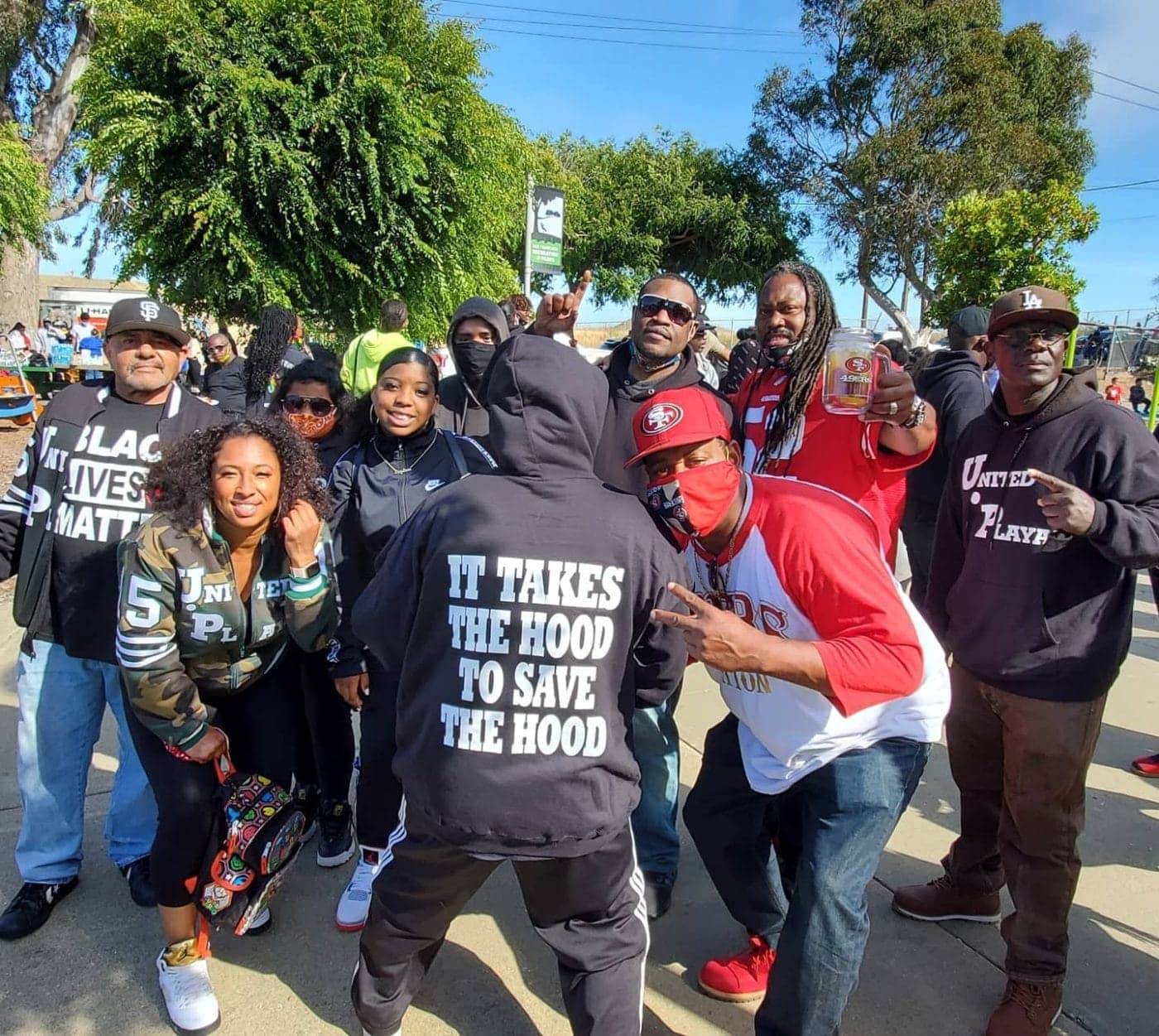
The people of 94124 speak up after the Juneteenth screening of ‘Straight Outta Hunters Point’
by Griffin Jones, SF Bay View
“If you’re not from 94124, you ain’t got no business with contracts, money, nothin’ coming in. ‘Cause you don’t know us,” said Maika Pinkston of From the Heart. She was speaking in a community discussion following the Juneteenth screening of 2002 documentary “Straight Outta Hunters Point” at the Bayview Opera House on Juneteenth.
The film, directed by Bayview native Kevin Epps, is the community showing itself how it really is, not how other people say it is. There is life on the hill – the people, the friendships, the gangs, the talent, the music – and there is also a deep look at why Hunters Point is the way it is.
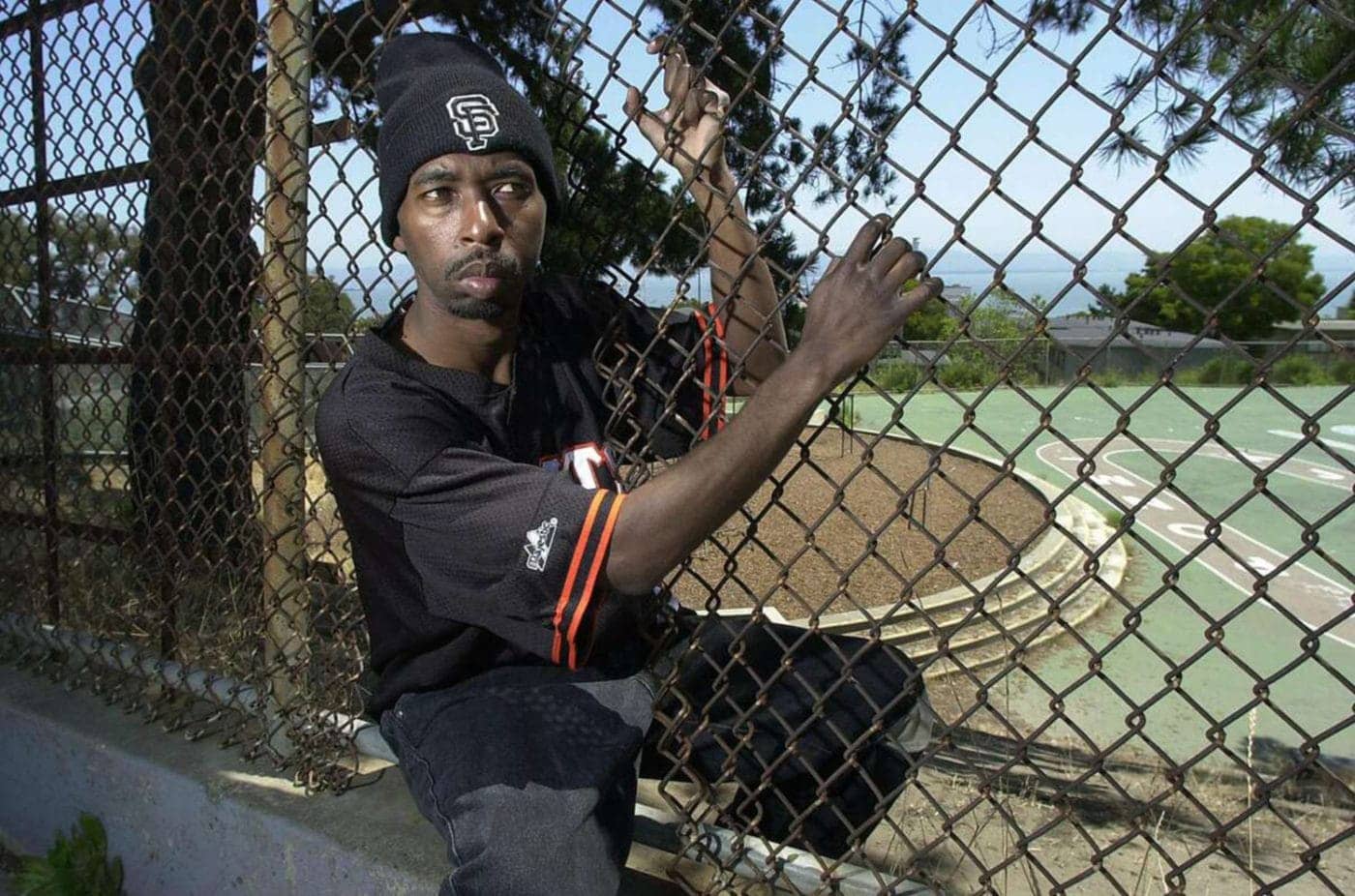
We hear from big thinkers like Dr. Willie Ratcliff, Dr. Ahimsa Sumchai, Charlie Walker and people throughout the film describing San Francisco’s targeting of the Black neighborhood, known as the fiercest hood in the Bay, with police murders, with toxic landfills spreading cancer, denied resources and stolen wealth.
Smiley, program director for the Opera House, said that “Straight Outta Hunters Point” is “one of the most beautiful, tragic, haunting experiences – the most real.” Smiley, along with Kevin Epps, led the community discussion, starting with her own response.
“This film makes me think about a friend that I had in middle school. Two friends, I found out today. Two friends. The first friend is Mario Woods. I remember hearing on the news that he had been gunned down. And I knew it couldn’t be Mario. Because he was so sweet. And so kind. And had the most memorable smile. But it was him. And I was just like, why? Why is this happening? Everything felt so far away at that point – and on that day, it was right on my doorstep. And then today, I found out that my brother had been brutalized by a cop.
“There is so much beauty in the Bayview. It is so rich, full of artists, producers and writers and directors. Videographers. Architects. Landscapers. Journalists. And there’s no place that y’all are supposed to be but here, developing your craft and moving on.”
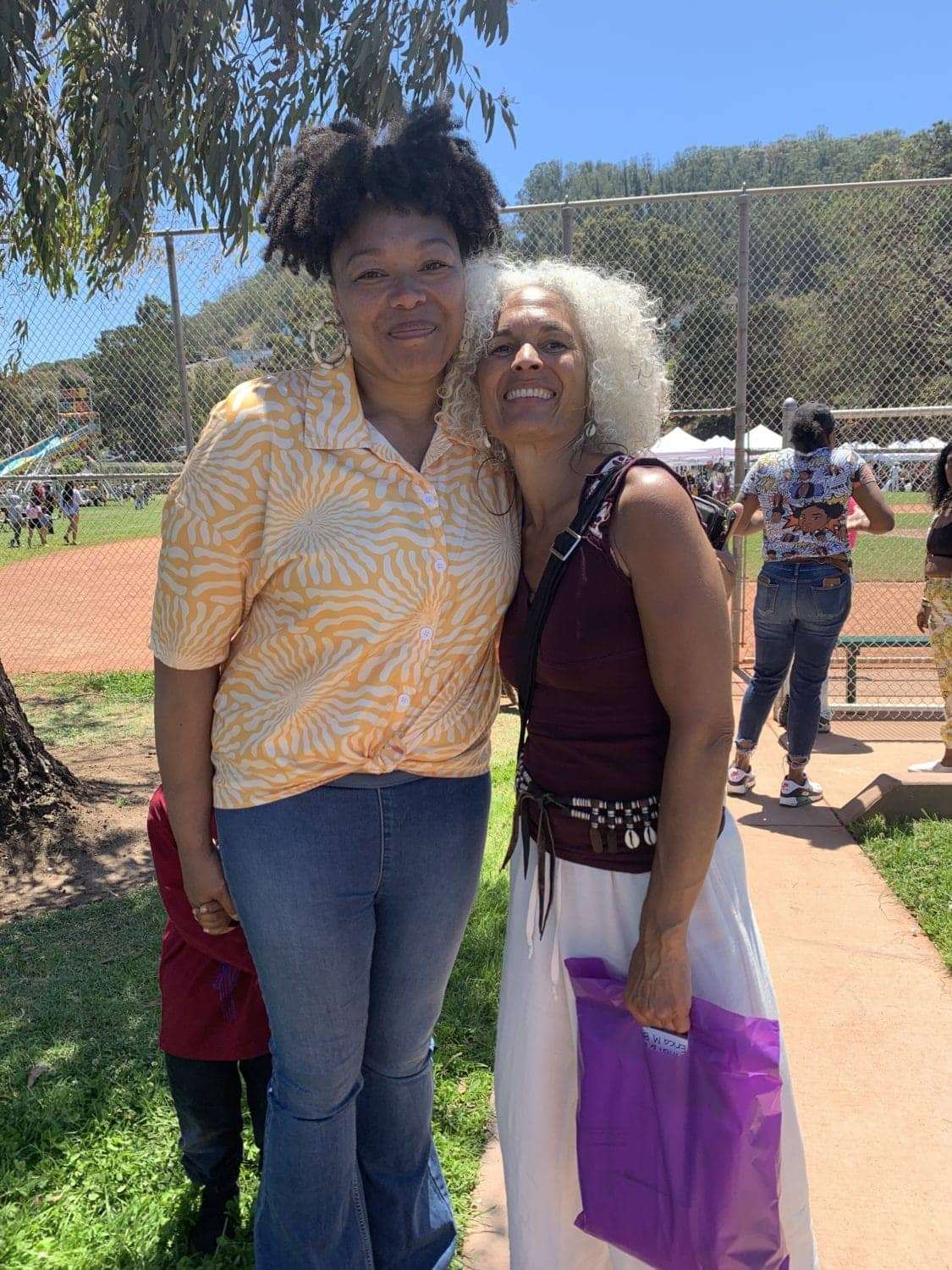
People in the audience, mostly people who’d been around for life, who’d seen what the movie saw, began to stand and speak in turns.
“The movie – I’ve seen it a million times. But if you look, this is 20 years later. Let’s say it’s that same neighborhood of West Point that we look at. But now, there’s only a few pockets of Black families. This film – we could go back through the film and do RIPs – I think it really resonates as a work, ‘cause you had to be there,” said Geoffrea Morris of Black Women Revolt Against Domestic Violence and daughter of Charlie Walker.
She went on: “And now, we have more jobs, more trainings – but there’s none of us left. So, I think that we need a ‘Straight Outta Hunters Point 3’ to really show it. We reap all the bad, and there’s so much good that comes into the Bayview, and we’re not here to get anything.” Geoffrea looked at Kevin and said, “I love you. This was amazing.”
Smiley picked up: “Real quick I’m gonna follow up on that. I’m wondering if these new journalists that the SF Bay View is about to have might want to jump into a little ‘Straight Outta Hunters Point’ festival – make some documentaries of their own, show them here, have some conversations about what’s been happening. I feel collaboration in the air.” People in the audience laughed.
Puerto Rico, from West Point, stood up to speak, pointing to Kevin. “You know what – you was there. Through all of it. Your life was there.” She gestured toward Geoffrea: “She made a good point. We got people here running stuff, opening stuff and stealing stuff from the people … There are powerful entities that have been robbing us, using us and abusing us.
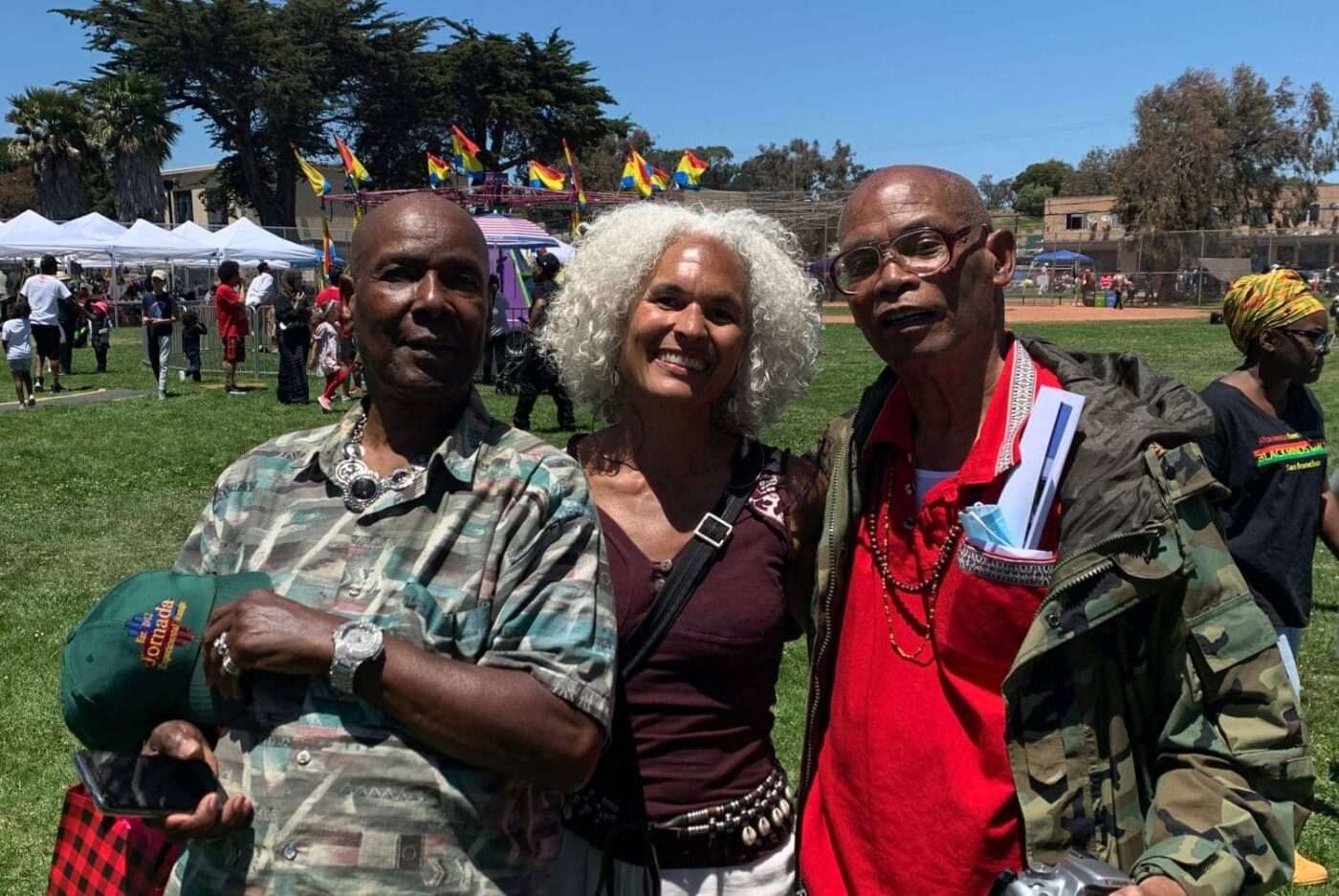
“We got people coming in who get funded, then go home. They don’t struggle like us. They’re using our identity, they use our names. They used me as a tool, they said to tell my people they’re gonna get something, they’re gonna get this and that.”
Puerto Rico continued: “M-N-C. They came here, opened something on Quesada, they got millions of dollars, and said they gave out a million – thanks to this Puerto Rican … All my people said, ‘We didn’t get nothing.’ The city gave you guys maybe $20-30 million to come over here and abuse us … They are using and abusing us Black people.”
She pointed to Kevin Epps: “You gotta let the world know. We got people coming and they’re running us outta here. Like she said – we’re not here no more. What happened to us? It’s like – little specks. What happened? This kills me. I’m 62 – all I know is Hunters Point. I love my community.”
She paused. “When I did an Easter event, I couldn’t even find kids. I had Easter baskets on Third Street, West Point, Harbor, Oakdale. I had 300 Easter baskets; it was amazing. I was going around, giving out, you know – Latinos, yes, Asians, yes – we don’t color our children.
“But, when I don’t see our children – my children of color … My son died. His name was on that wall.” Puerto Rico gestured at Kevin: “He knows my child. We need you. Everyone is coming in and rushing us out. Someone got a couple million dollars to pass out food. Hold on a minute. We need something that’s real.”
Next, Maika Pinkston stood up to speak. “I represent From the Heart. Number one: Everything that’s going on today is being allowed. We’ve had four shootings within the last week, and ain’t nobody said nothing. Nobody has heard nothing. I called down to the Board of Supervisors to make them aware of the shootings that take place on the hill. Nobody didn’t know nothing.
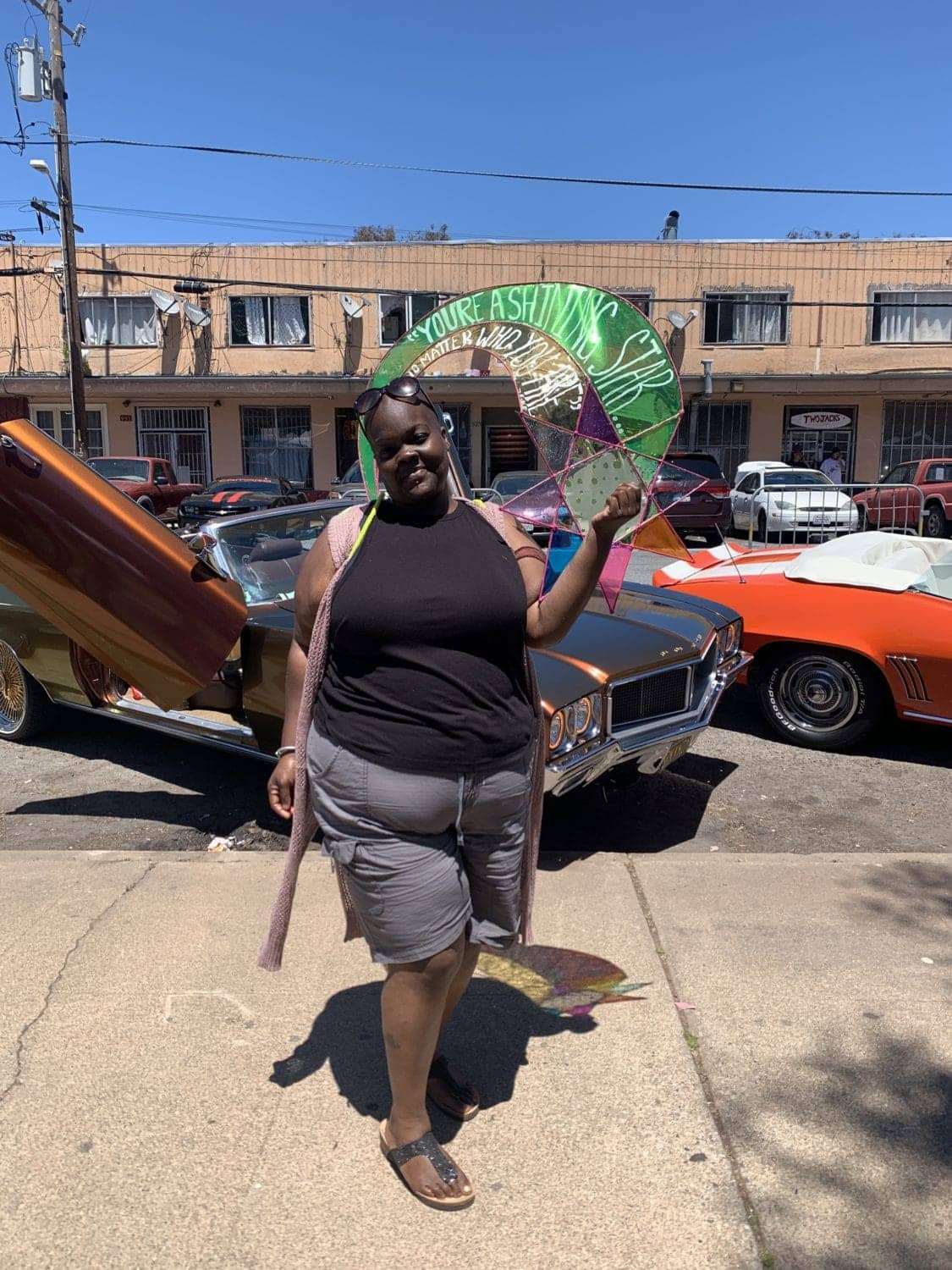
“Then, I come down Third Street, I get a phone call, and I’m 30 feet from the police, coming down, I say: ‘Excuse me, what are you doing here? Why we down here? Why we wasting tax payers’ money?’ And someone had fallen off a motorcycle, flipped on his head, by the police.
“Then, they break down our projects, our homes, and make it to where our boys are on Third Street like cattle … If you’re not from 94124, you ain’t got no business with contracts, money, nothin’ coming in. ‘Cause you don’t know us. I know this, ‘cause I’m out here. I’m out here, and I see it, and I know it – as a woman, as a mother, as a grandmother – I’m keeping our boys under my control to the best of my ability.
“When I come down there, I make them feel loved. That way, at least, if they feel like they’re part of a community, then they won’t be out here trying to kill each other. And if you aren’t from here, you just work here, then you will never understand the dynamics of what’s going on.
“There was an iron work program, and they said nobody showed up. I said, ‘Well, were you guys walking out there, and asking if they would?’ ‘No.’ I said, ‘Well how are they supposed to know about the jobs?’ ‘Well, Maika will you come with us down there?’ I said, ‘You scatter our kids!’”
You cannot recreate disaster in order to get what is rightfully yours – and you shouldn’t have to.
Lejon Loggins, standing along the edge of the crowd, spoke up: “We need a ‘Straight Outta Hunters Point 3’ because it’s the voice of the people being projected across the world. And, the problem is not the people who’s gettin’ the money – it’s the people giving it. We need to start right there.
“I’m born in Fillmore, raised in Hunters Point. I received an award for saving a family of four in Hunters Point – 3 grandkids and a grandmother. I’m not saying this to brag. But when I got that award, they told me, ‘Whenever you need our help, come to us.’ So, when I came to them recently for my project, one of the people – I won’t say names – said, ‘Oh this award? Oh, come back when you got something more recent.’ All that says, though, is that this person wasn’t listening. And you can’t just rebirth a fire.”
You cannot recreate disaster in order to get what is rightfully yours – and you shouldn’t have to.
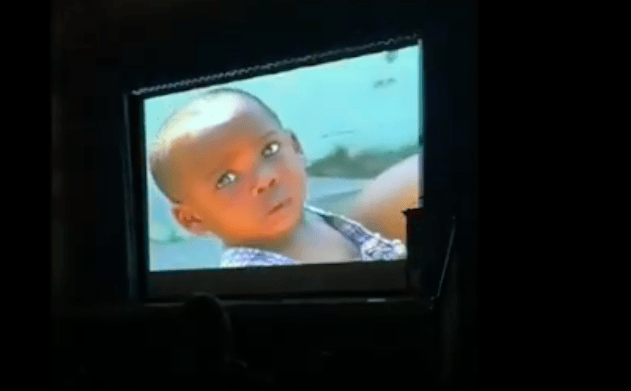
When SF Bay View Editor Nube Brown introduced the film, she marveled at the crowd, remembering why we come together: “One of the most significant things about Juneteenth is, when the Emancipation Proclamation was made – especially on this day, on Father’s Day – the first thing that people were able to do was go look for their people.
“That aspect of being able to go find your people to me is the essence of what it is we are still building today. And so, to be able to be here with all of you is amazing as we are building it! Because that is what we are doing – we are building.”
And as we build, we remember what we are building on. Director Kevin Epps expressed his gratitude: “I want to say thank you to Mr. Ratcliff. You’re an inspiration to me, and I’m going to continue the work forward. It wasn’t always popular, but it was always the right thing. Press play. I love y’all.”





